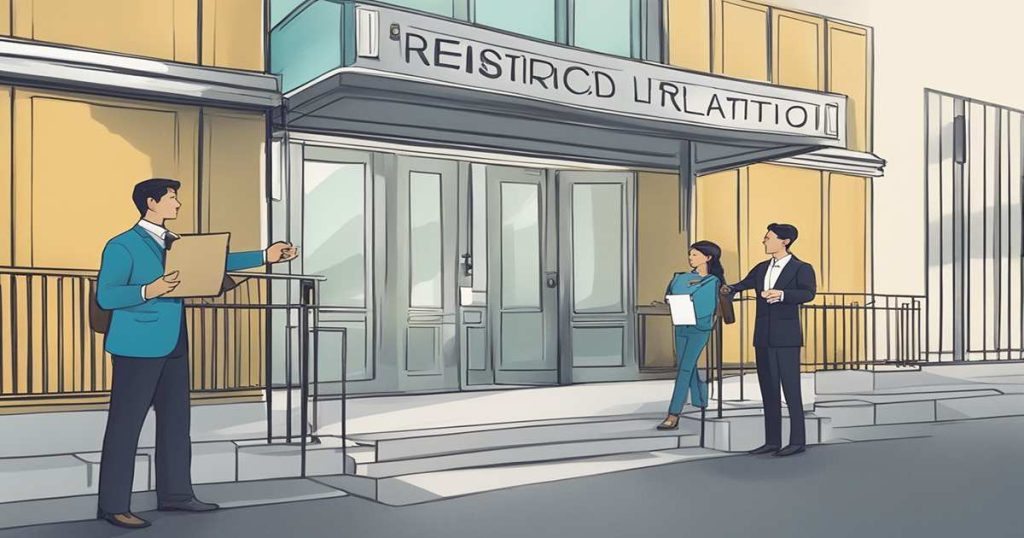
Invitee vs Licensee: Understanding the Key Differences
If you own property, you should understand the legal distinctions between different types of visitors. In particular, you should understand the differences between invitees and licensees. Both types of visitors are owed different levels of care and protection under the law. Understanding these differences can help you avoid legal liability in certain situations.

An invitee is a person who is invited onto your property for a specific purpose. This could include customers at a business or social guests at a party. Invitees are owed the highest level of care under the law. Property owners have a duty to take reasonable steps to ensure their safety while on the property.
On the other hand, a licensee is a person who has permission to be on the property but is not there for a specific purpose. This could include social guests who are not there for a party. It could also include people who are visiting the property for personal reasons. Licensees are owed a lower level of care than invitees. However, property owners still have a duty to warn them of any dangerous conditions on the property.
Key Takeaways
- Property owners must understand the differences between invitees and licensees. This will help them avoid legal liability.
- Invitees are owed the highest level of care under the law. Licensees are owed a lower level of care but still have certain protections.
- Property owners have a duty to warn licensees of any dangerous conditions on the property. They must also take reasonable steps to ensure the safety of invitees.
Understanding Invitee vs Licensee, and Trespasser
Definitions and Differences
The law classifies visitors to a property as an invitee, licensee, or trespasser. An invitee is someone who is invited onto the property for a business purpose, such as a customer or client. On the other hand, a licensee is someone who is allowed to be on the property. They have no contractual relationship with the property owner. A social guest at a residence is an example of a licensee. Lastly, a trespasser is someone who enters the property without permission.
The key difference between an invitee and a licensee is the reason for their presence on the property. An invitee is on the property for a business purpose, while a licensee is there for a social purpose. The property owner has a higher duty of care towards an invitee than towards a licensee or a trespasser.
Property Owner’s Responsibilities
Property owners have a duty to protect invitees and licensees from harm while on their property. This includes maintaining safe conditions on their property. They must also take reasonable care to prevent accidents. Owners owe the highest duty of care to invitees, followed by licensees, and then trespassers.
In a premises liability case, if an invitee or licensee is injured due to the property owner’s negligence, the owner may be held liable for damages. The injured party must prove that the owner knew about the dangerous condition. Or, they must show that the owner should have known about it. They must also show that the owner failed to take action to remedy it.
Legal Implications of Status
The legal status of a visitor to a property can have significant implications for a premises liability claim. Property owners have a duty to protect invitees and licensees from harm. However, they do not owe the same duty to trespassers. However, a trespasser may be able to file a claim. They must prove that the property owner knew or should have known about their presence. The owner must have failed to take action to protect them.
If you have been injured on someone else’s property, it is important to understand your legal status. You can be an invitee, licensee, or trespasser. You may be entitled to compensation for your injuries. This is if the property owner breached their duty to protect you. Contact a premises liability attorney for a free consultation and to discuss your legal options. Remember, property owners have a duty to protect their visitors. You have a duty to protect yourself. Understand your legal rights and file a claim if necessary.
Legal Recourse and Liability
Premises liability cases involve determining the duty of care of a property owner. This can be complex. When determining a property owner’s duty to invitees, licensees, and trespassers, several factors are considered. These factors include the degree of duty, level of care, and amount of duty.
Filing a Premises Liability Case
If you have suffered a personal injury due to a hazardous condition on someone else’s property, you may be eligible for compensation. To file a claim, schedule a free consultation with premises liability attorneys today. It’s recommended. They can help you determine if you have a viable case and what your legal options are.
Determining Duty and Breach
You must prove that the property owner is liable for your injury. To do this, prove that they breached their duty to protect you from harm. The duty to protect varies depending on the status of the visitor. Invitees and licensees are owed a higher degree of care than trespassers. Property owners still have a duty to protect trespassers from known dangers.
When determining the duty owed to invitees and licensees, a number of factors are considered. The factors include the purpose of the visit, the foreseeability of harm, the condition of the property, and the actions of the property owner. If the property owner knew or should have known about a hazardous condition and failed to take reasonable steps to correct it, they may be liable for any injuries that result.
If you have been injured on someone else’s property, it is important to seek legal representation as soon as possible. Premises liability cases can be complex. Experienced attorneys can help you. You may be entitled to compensation for your injuries.
Frequently Asked Questions
What are the legal obligations owed to an invitee compared to a licensee?
The legal obligations owed to an invitee are greater than those owed to a licensee. Property owners owe invitees a higher duty of care than they owe licensees. This means property owners must take reasonable steps to protect invitees from harm. They can do this by fixing dangerous conditions. They can also warn invitees of potential hazards. Property owners have a lesser duty to licensees. They are only required to not intentionally harm them.
How does the classification of a person as an invitee or licensee affect premises liability in Texas?
In Texas, premises liability is affected by classifying a person as an invitee or licensee. Property owners owe a higher duty of care to invitees than they do to licensees. If an invitee is injured on the property due to the property owner’s negligence, the owner may be liable for the invitee’s injuries. In contrast, if a licensee is injured on the property, the property owner may not be liable. The property owner cannot be held liable unless they intentionally caused the injury.
Under what circumstances is a tenant considered an invitee rather than a licensee?
In general, a tenant is considered a licensee rather than an invitee. However, if the tenant is on the property for a business purpose, such as to conduct repairs or to collect rent, they may be considered an invitee.
What are the distinctions between invitee, licensee, and trespasser in property law?
The distinctions between invitee, licensee, and trespasser in property law are significant. An invitee is someone who is invited onto the property for a business purpose, such as a customer in a store. A licensee is someone who is on the property for a social purpose, such as a guest at a party. A trespasser is someone who is on the property without permission. Property owners owe a duty of care to invitees and licensees, but not to trespassers.
How do the responsibilities of a property owner differ toward a hotel guest as an invitee or licensee in Florida?
In Florida, a hotel guest is generally considered an invitee. This means that the property owner owes the guest a higher duty of care than they would owe a licensee. The property owner must take reasonable steps to protect the guest from harm. For example, they must fix dangerous conditions. They must also warn the guest of potential hazards.
Can you provide a real-world scenario that illustrates the difference between an invitee and a licensee?
Sure. Imagine you are a property owner and you invite a friend over for a party. Your friend is a licensee because they are on your property for a social purpose. However, if you also invite a repairman to fix your air conditioning, the repairman is an invitee. They are on your property for a business purpose. As a property owner, you owe a higher duty of care to the repairman than you do to your friend. This is because the repairman is an invitee. If the repairman is injured on your property due to your negligence, you may be liable for their injuries.


